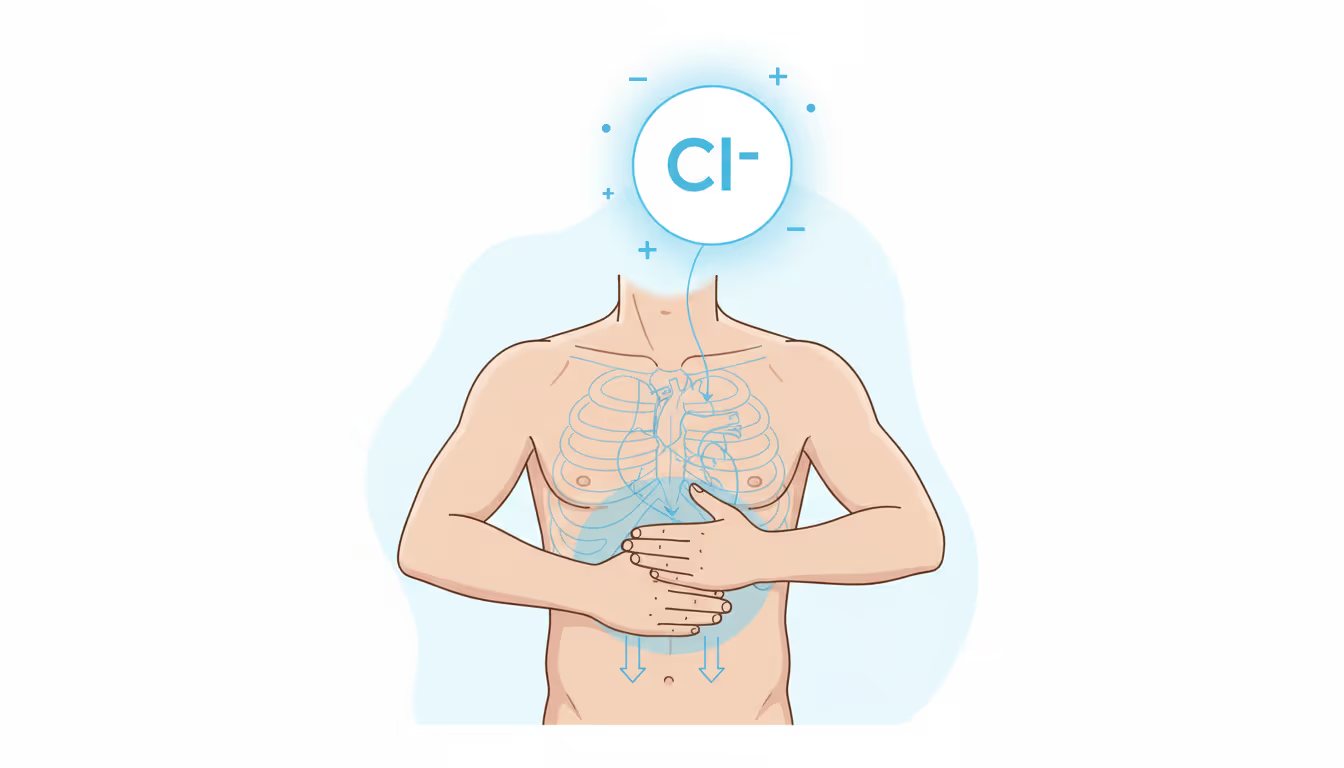
Chloride (Cl):The symbol Cl represents chloride, a key component found primarily in the fluid outside cells and in the bloodstream. As an anion, it carries a negative charge and is part of compounds like table salt (sodium chloride or NaCl) when dissolved in liquids. The body carefully regulates chloride ion (Cl-) levels, as significant deviations can be harmful or even life-threatening. Elevated chloride levels (hyperchloremia) may result from conditions such as diarrhea, specific kidney disorders, or the overactivity of the parathyroid glands. Conversely, reduced chloride levels (hypochloremia) can occur due to excessive loss through urine, sweat, stomach secretions, heavy perspiration, vomiting, certain illnesses, or kidney dysfunction. The typical serum chloride range is between 98 and 108 mmol/L.




